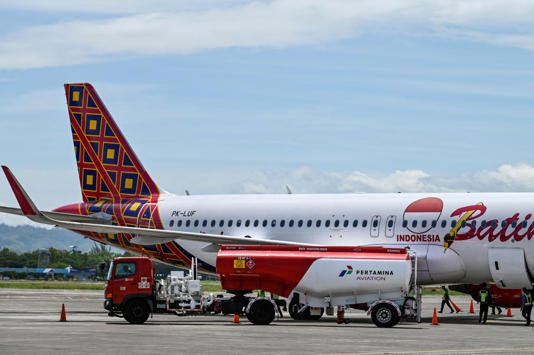An Indonesian passenger plane, carrying more than 150 people, recently experienced a harrowing incident when two pilots simultaneously fell asleep during a flight. According to a preliminary report by Indonesia’s National Transportation Safety Committee (KNKT), the pilots were operating a Batik Air flight from Kendari in Southeast Sulawesi province to the capital, Jakarta, on January 25. During this fateful flight, both pilots dozed off for a staggering 28 minutes.
Approximately 30 minutes into the flight, the pilot in command requested permission from his second-in-command to rest. The plane had reached a cruising altitude of 36,000 feet. The second-in-command agreed, and the pilot in command fell asleep for about an hour. Upon waking up, the pilot in command asked his deputy if he wanted to rest, but the second-in-command declined. Undeterred, the pilot in command decided to catch some more shut-eye.
Meanwhile, the second-in-command made contact with air control in Jakarta. However, fate took an unexpected turn when he “inadvertently fell asleep.” The Jakarta area control center repeatedly attempted to reach the plane, but their calls went unanswered. For nearly half an hour, the pilots remained unreachable.
Around 28 minutes after the last recorded transmission, the pilot in command finally stirred from his slumber. To his alarm, he realized that the plane was off its intended flight path. Acting swiftly, he roused the second-in-command and corrected the aircraft’s trajectory. Fortunately, the flight landed safely in Jakarta, with no injuries to the 153 passengers and four flight attendants on board. The Airbus A320 sustained no damage during this unsettling episode.
The report did not disclose the pilots’ names, but it confirmed that both were Indonesian. The pilot in command was 32 years old, while the second-in-command was 28. Both pilots had passed health checks, tested negative for alcohol, and were deemed fit to fly.
Indonesia’s aviation authorities are now investigating this alarming incident. Questions arise about cockpit procedures, crew fatigue management, and communication protocols. The safety of passengers and crew remains paramount, and this incident serves as a stark reminder of the critical responsibility borne by pilots.
As the investigation unfolds, aviation experts and officials will scrutinize the events leading up to those fateful 28 minutes of shared slumber. The aviation community awaits further insights from the National Transportation Safety Committee to prevent such incidents in the future.
In the wake of this incident, airlines worldwide may reevaluate their crew rest policies and reinforce the importance of vigilant monitoring during flights. The skies demand unwavering attention, even when eyelids grow heavy.
While the sleepy skies over Indonesia have now regained their course, the incident underscores the need for constant vigilance and adherence to safety protocols. Let this serve as a wake-up call for all aviators: the cockpit is no place for drowsiness.




Comments
Post a Comment